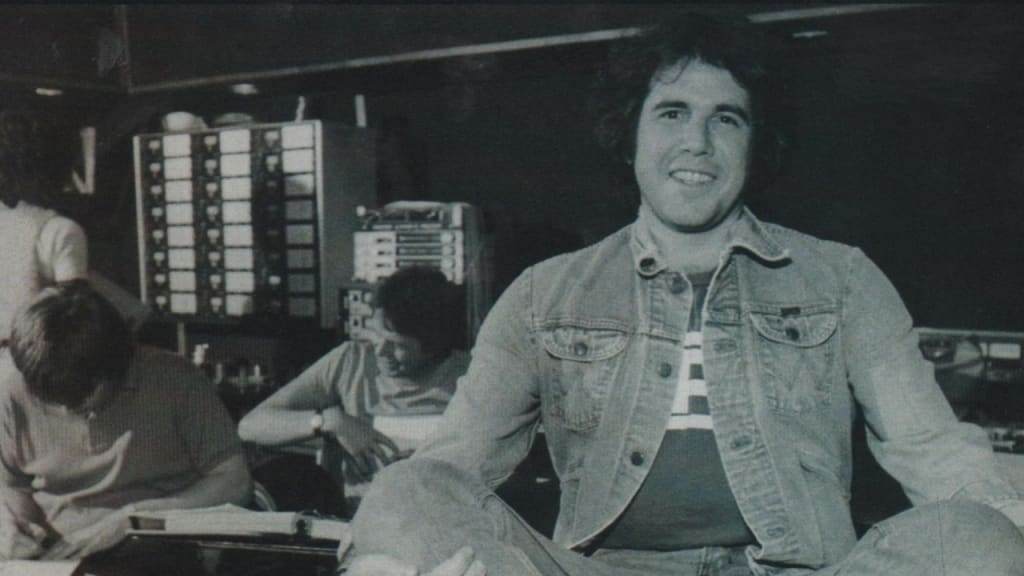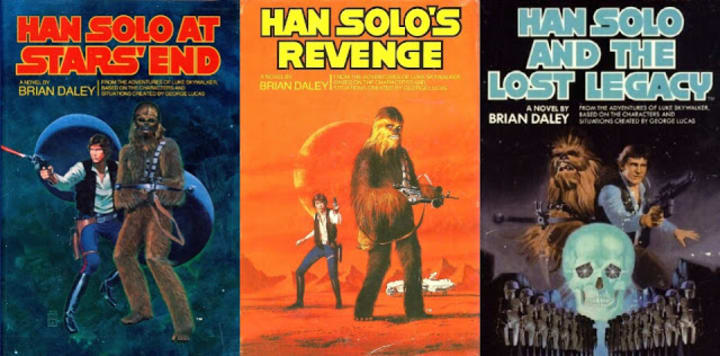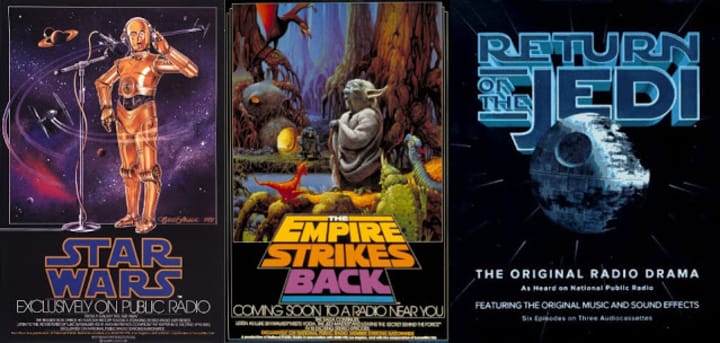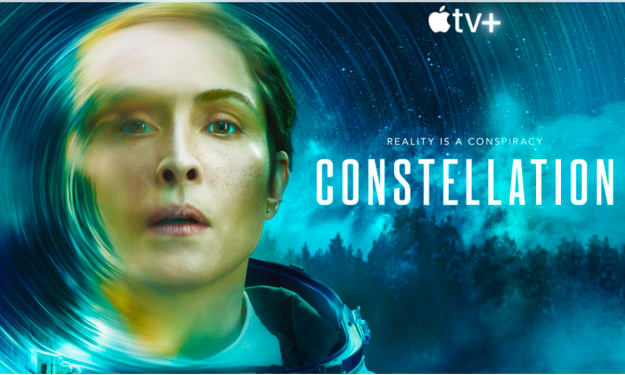Brian Daley - The Man Who Expanded The Universe
How Much Do You Know?

On February 11, 1996, Brian Daley died of pancreatic cancer at the age of only 48.
Younger fans might not even be familiar with this name, but for those who have been there when Star Wars exploded in the late '70s, Daley was one of the very first who expanded the lore beyond that of the movies.
During his writing career of roughly two decades, Daley, who was born in Englewood, New Jersey on December 22, 1947, wrote more than 40 novels, most of them in the sci-fi and fantasy genre and many of which together with his longtime collaborator and close friend James Luceno (Tarkin, Darth Plagueis) under their common pseudonym of Jack McKinney.
Before his writing career, Daley had various jobs, including bartender and steam cleaner of UPS trucks, before he enlisted as a soldier and fought in the Vietnam war for one year.
His experience there inspired him to his first novel, The Doomfarers of Caramonde, published in 1977, which deals with a group of US soldiers, who are teleported from the battlefields of Vietnam into a fantasy world with sorcerers and dragons. The novel was a moderate success, and so Daley’s publisher Lester del Rey asked for a sequel, which Daley had some trouble writing (but was lastly published as The Starfollowers of Caramonde in 1979). To clear his mind, he asked his publisher if he could write another novel, and was offered to do a book within Star Wars universe.
Daley and Luceno had seen Star Wars when it was released in May of 1977, and to be able to play in the sandbox that Gorge Lucas had created was a dream come true for the young novelist. So, he pitched the idea of Luke and Leia going on an adventure to explore the history of the Jedi to Lucasfilm. But at that time Lucas was already developing The Empire Strikes Back and didn’t want a novel that could potentially contradict anything that would be presented on the big screen. And so, Daley was told to come up with something else.
At first, he was disappointed about not being allowed to use Luke, Leia, Darth Vader, or the Force, but then he remembered another main character from the movie who wasn’t in any way affiliated with the Force: Han Solo.
And unlike the first novel that was published after the movie’s release – Alan Dean Foster’s Splinter of The Mind’s Eye – Daley set the events of his story before the fateful meeting of the smuggler with Ben Kenobi and Luke Skywalker and outside the grasp of the Empire, in a part of the galaxy called the Corporate Sector, with a stormtrooper-like army called the Corporate Sector Authority's Security Police.
Daley wrote the book, which was originally titled The Millennium Falcon Deal, in just 6 weeks. It was published in April of 1979 as Han Solo at Stars' End and became a New York Times bestseller. So Del Rey asked Daley to write two sequels, which were originally called Han Solo’s Transit and Han Solo Collections Ltd, but then published as Han Solo’s Revenge and Han Solo and the Lost Legacy in October of 1979 and August of 1980. All three books were later republished as hardcover and paperback under the banner of The Han Solo Adventures, making it the first of many trilogies in the Star Wars universe.

The success of the novels soon lead to another engagement by Lucasfilm, which would also have a lasting effect on the franchise: the NPR radio dramas.
Even back then, radio was long past its prime times, replaced by television, and so it was quite a risk to try an endeavor like this. Daley wrote the script for the dramatization of Star Wars between the end of 1979 and March 1980, and it was much more than just an audio version of the movie. With 13 half hour episodes, its length vastly exceeded that of the movie itself, adding scenes that had been in the script, but were then cut from the movie and adding many more new ones, thus giving the characters much more background. Decades before Rogue One the audience got to hear a quite different story of how the Rebels acquired the plans to the Death Star.
Mark Hamill and Anthony Daniels reprised their roles from the movie, as did Billy Dee Williams for the adaptation of The Empire Strikes Back (recorded in 1983). Daley was there in the recording studio every day, refining and rewriting lines and providing background voices. Both adaptations were a huge success, and everyone (including Daley) believed that he would start writing the script for the Return of the Jedi adaptation soon after the movie had come out. But NPR was in financial difficulties at that time and struggled to raise the money for this project, and over time, interest in Star Wars waned.
Daley wrote another short audio drama called Rebel Mission to Ord Mantell in 1983, and the script for a Droids episode that was never produced, but then moved on with his career, writing more than 20 novels for the Robotech franchise together with Luceno.
At the beginning of the '90s, it seemed that both authors were slated to write the first novels of what would become the Expanded Universe. Daley hoped that he would now be able to write about Luke’s mystical journey and the rebirth of the Jedi Order after Episode VI. But due to political struggles, Ballantine lost the Star Wars license, and so it was Timothy Zahn who would reignite Star Wars literature with Heir to The Empire.
Then in 1995, the radio dramas came full circle, as Highbridge Audio, who had released the radio dramas for Episodes IV and V on CD, finally raised the money to do the third movie of the original trilogy, and again, Daley was hired to write the script. At that time, he was already very ill and could not be there in the recording studio. On the last day, the cast and crew recorded heartfelt messages for Daley, wishing him a fast recovery. Sadly, he would never hear these kind words, as he passed away the same night. The NPR radio drama for Return of the Jedi was broadcast in 1996.

With James Luceno’s rise as a Star Wars author at the beginning of the 2000s, it would have been interesting to see if Daley would finally have been able to write novels of the New Jedi Order, maybe again in tandem with his old friend. We will never know, but Brian Daley’s name in Star Wars history will forever be associated with the man who was one of the first to expand the universe.
Written By Gerald Petschk
Source(s): Star Wars Insider Issue 55, Star Wars Insider Issue 139
Syndicated From Culture Slate






Comments
There are no comments for this story
Be the first to respond and start the conversation.